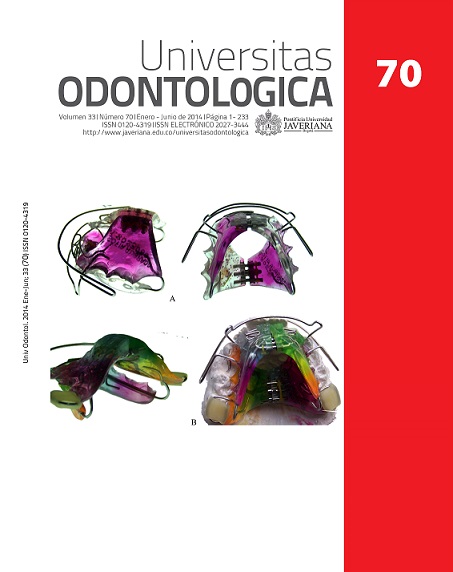Abstract
Background: Master’s degrees are developed to encourage pursuing high-level knowledge. Their creation promotes national and personal growth and development. Purpose: To describe postdoctoral master’s degrees in dentistry, which are offered worldwide and in Colombia. Methods: This descriptive study looked for the terms maestría, master, master degree, magister AND odontologia, dental, and dentistry in the databases PubMed, SciELO, and Google Scholar. Variables analyzed were program name, continent, country, university, and field of emphasis. The search was conducted between September and December 2012. Central tendency measures and proportions were calculated for quantitative and qualitative variables respectively. Results: 289 master’s programs in dentistry were found in 130 institutions of higher education. Europe was the continent with the largest proportion of programs. Colombia had a very low number of this type of postdoctoral degree when compared to Brazil and Mexico, 32% of programs were named as Master of Dentistry and 82% had an emphasis on clinical practice. Conclusion: Until the date of data collection for this project, Colombia had fewer master’s programs in dentistry when compared to countries like Brazil, Mexico and Chile. Therefore, it is necessary to promote the creation of master’s degrees in which research addresses the dental health epidemiological trends.
KEYWORDS
dental education; dentistry; universities
This journal is registered under a Creative Commons Attribution 4.0 International Public License. Thus, this work may be reproduced, distributed, and publicly shared in digital format, as long as the names of the authors and Pontificia Universidad Javeriana are acknowledged. Others are allowed to quote, adapt, transform, auto-archive, republish, and create based on this material, for any purpose (even commercial ones), provided the authorship is duly acknowledged, a link to the original work is provided, and it is specified if changes have been made. Pontificia Universidad Javeriana does not hold the rights of published works and the authors are solely responsible for the contents of their works; they keep the moral, intellectual, privacy, and publicity rights.
Approving the intervention of the work (review, copy-editing, translation, layout) and the following outreach, are granted through an use license and not through an assignment of rights. This means the journal and Pontificia Universidad Javeriana cannot be held responsible for any ethical malpractice by the authors. As a consequence of the protection granted by the use license, the journal is not required to publish recantations or modify information already published, unless the errata stems from the editorial management process. Publishing contents in this journal does not generate royalties for contributors.


